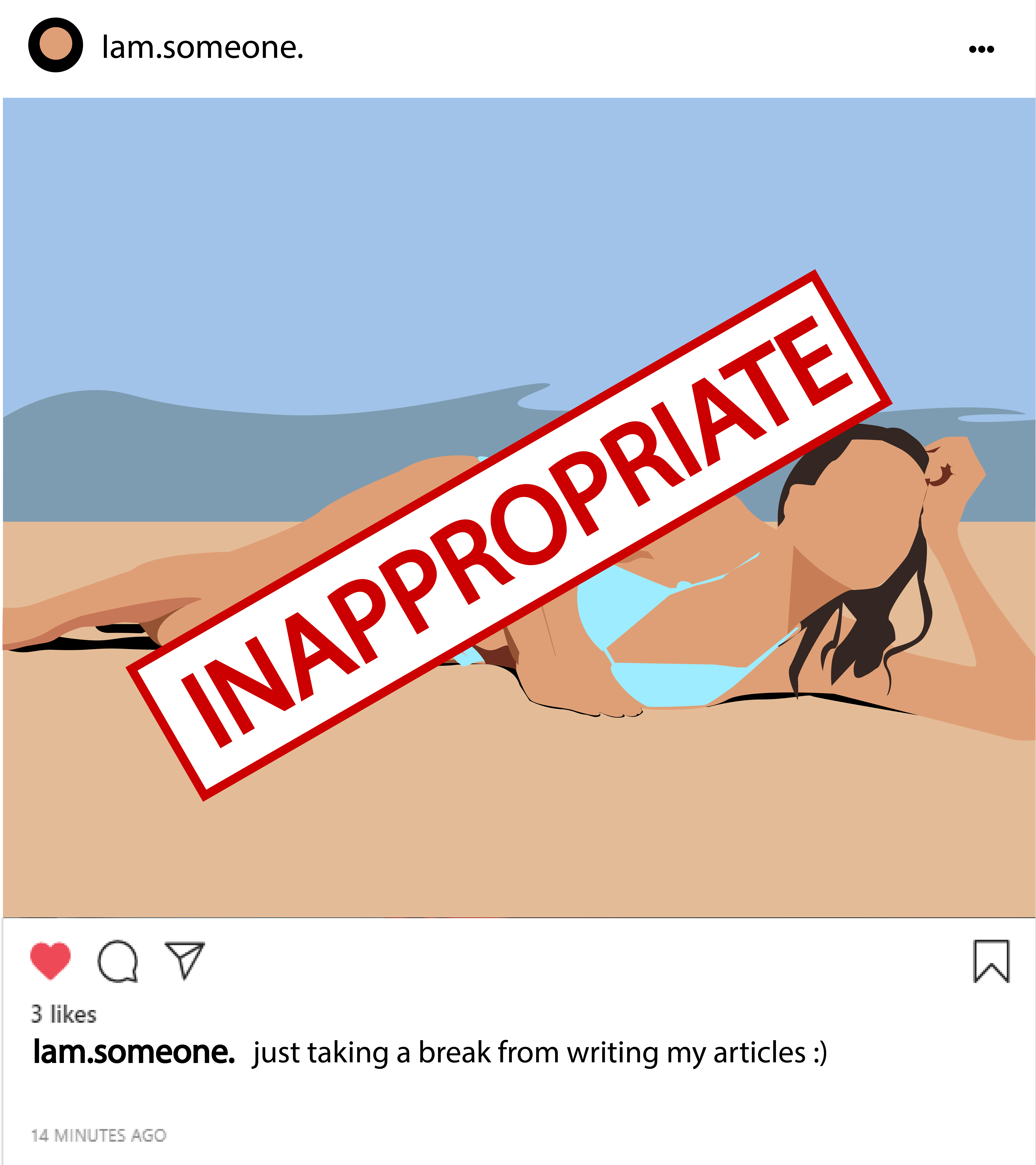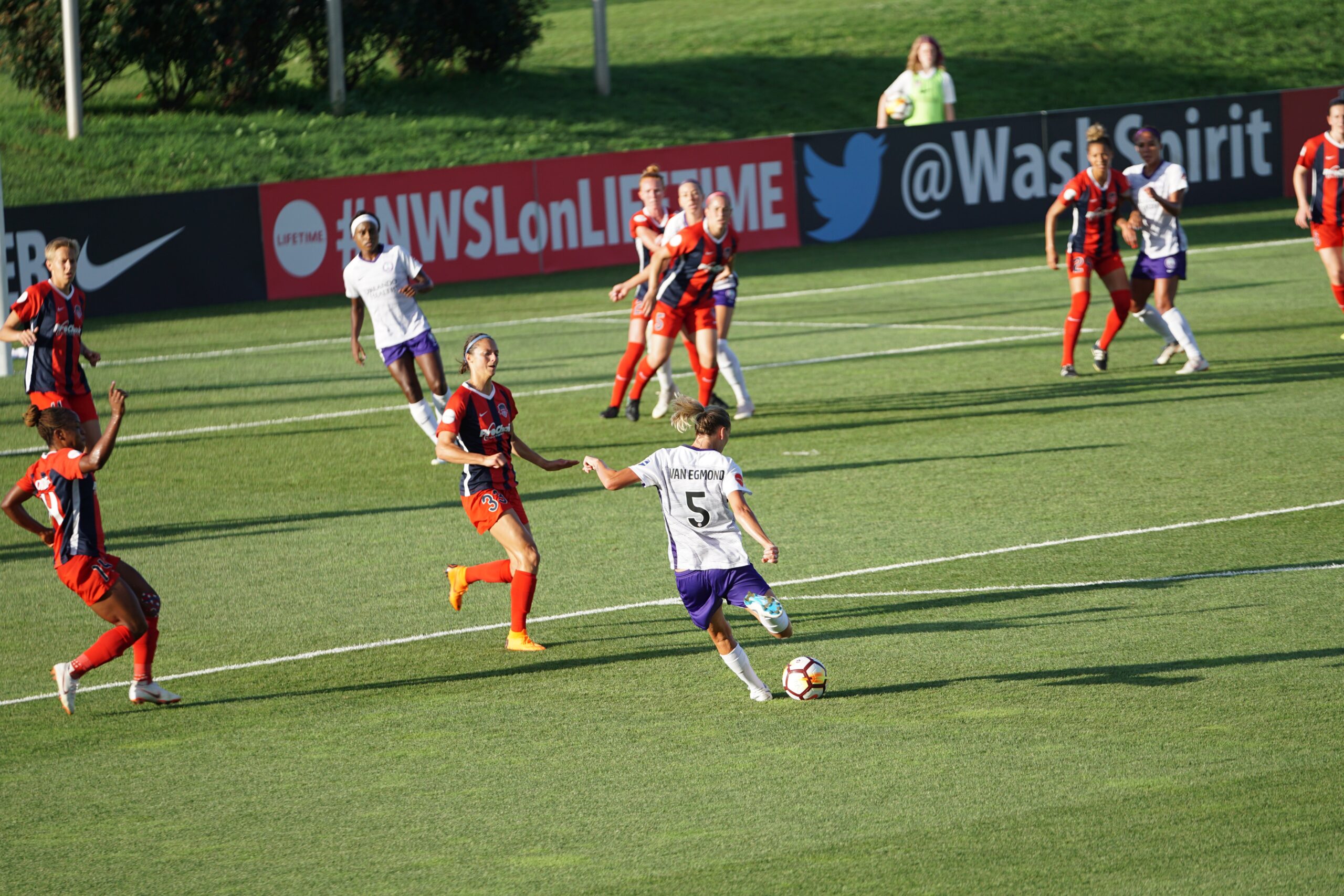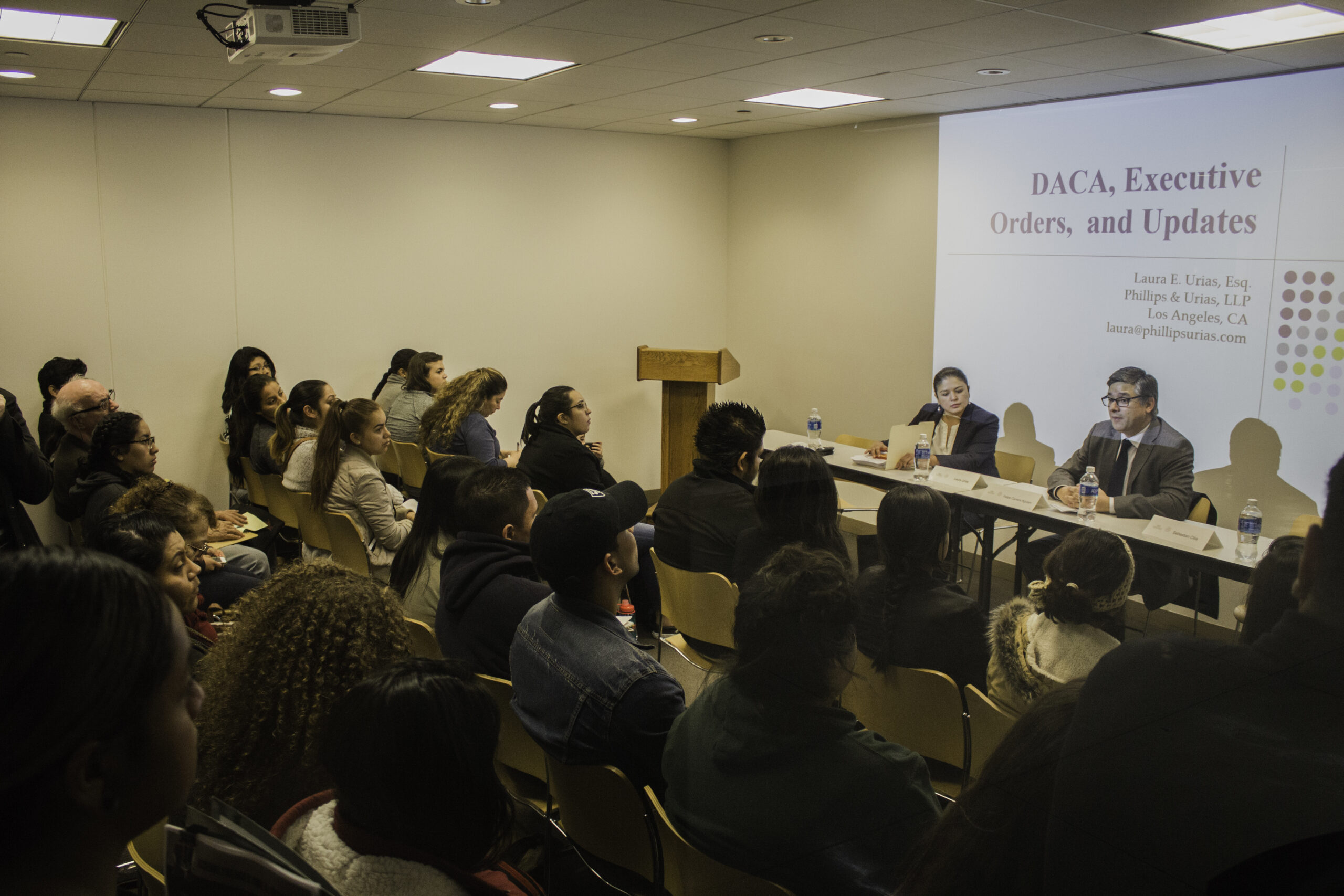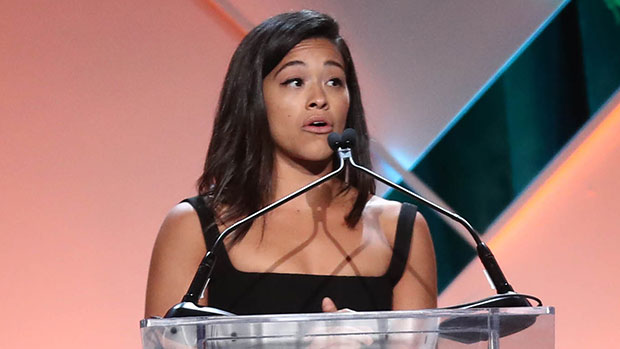Women are sexualized and shamed for posting pictures in bikinis on social media. Illustration by Nova Blanco-Rico.
by Skyler Belmonte, Staff Reporter
Oh, how amazing it would feel if it was possible in today’s society to separate our personal and professional lives. To not be chained to private, personal accounts. To have the freedom of not feeling forced to befriend or engage with coworkers on social media. To not be questioned or judged about your posts by your acquaintances. It is a satisfying feeling to have the freedom to live two separate lives, peacefully.
Why are women sexualized for posting photos in bikinis if men can escape criticism and post shirtless pictures at the beach? They are just breasts and butts, people! We all have them.
Upon joining the campus newspaper, The Bulletin at California State University, Dominguez Hills, I was alerted to be cautious of the content I share on my social media accounts, as it is a reflection of the university. I was immediately defensive and discouraged. I felt like my First Amendment right was being suppressed. How could the school newspaper staff and my fellow students have permission to question what is tasteful content and what is not?
College journalists should not be discouraged from sharing photos on social media that make them feel confident, sexy and happy about themselves. Our words do not symbolize our bodies. Photos are not reflections of our morals or values. Students and faculty should applaud freedom of expression in all forms. Some of us genuinely enjoy and are proud to flaunt our curves on social media. It is empowering, freeing and hearing your phone ring with notifications from people liking your post is a thrilling dopamine rush. Posting pictures of myself has helped me build my confidence.
Before judging someone, predominantly women, for the photos they post on their Instagram account, ask yourself how their pictures affect your life. I am a confident, bold woman who genuinely enjoys posting revealing pictures of myself. My school peers, nor my instructors should have a say in what I choose to post on my social media.
“Student journalists aren’t immune to these standards because the nature of the networked environment no longer allows us the luxury to separate our private and professional lives once our information is shared across social media domains,” said Dr. Brant Burkey, an associate professor for the Journalism Program at CSUDH.
He said, although it may be unfair, there are consequences for journalists who choose to post risky content, and it is best to be cautious or prepare for the backlash.
If I make my bed, then I am proud to lay in it. I agree and respect that all choices, good and bad, come with consequences. Like I always say, if I choose to dance in the rain, then I must be prepared to possibly get sick. I am in love with every stretch mark that paints my brown skin. I am proud of the scars that were engraved onto my fragile canvas. I will forever embrace my beautiful, natural body because there were moments when I hated it.
If newspaper colleges and companies want to control what students and employees post on their social media, a clear contract must be written. A formal contract clearly stating what is permissible to post is understandable, because they are giving their employees a choice. Giving journalists a written choice and allowing them the freedom to agree with the policies, is what college newspapers need. Students should face severe consequences for posting hateful, insensitive content. But why should their bodies be labeled as obscene or inappropriate, too?
Until a formal code of ethics contract is written and signed, how can anyone be in control of what I post on my own social media accounts?
Long Beach State’s student newspaper, The Daily Forty-Niner, also does not require staff to sign a formal agreement stating students are to refrain from posting explicit photos of themselves on social media. Yet, student reporters of the college feel anxiety when wanting to post revealing pictures of themselves.
“It is dehumanizing to journalists,” Ashley Ramos said, social media assistant for The Daily 49er. “I was interested in modeling lingerie, but I had to ask myself, ‘Would I be allowed to post that?’”
The Daily 49er staff adheres to the Society of Professional Journalists Code of Ethics. The contract states that there are four main guidelines all journalists must follow: Seek truth and report it, minimize harm, act independently, and be accountable and transparent.
The SPJ requests that I act independently and be transparent. Yet, how can I uphold such guidelines when I am not allowed to post content that makes me feel powerful? How can I be expected to be independent when who I am is not who they want me to be? In order to achieve happiness, we must be allowed to do what makes us truly happy. And, loving myself enough to share my photos with the world, makes me happy.
While Ashley Ramos says her team is in the process of rewriting their policies and adopting a social media code of ethics, the anxiety still remains. Until a formal code of conduct is written, college journalists should be able to practice their independent right to publish their opinions, and bodies freely; with the knowledge of possibly affecting their public image.
Be who you are when no one is looking, live unapologetically, and love yourself deeply.



